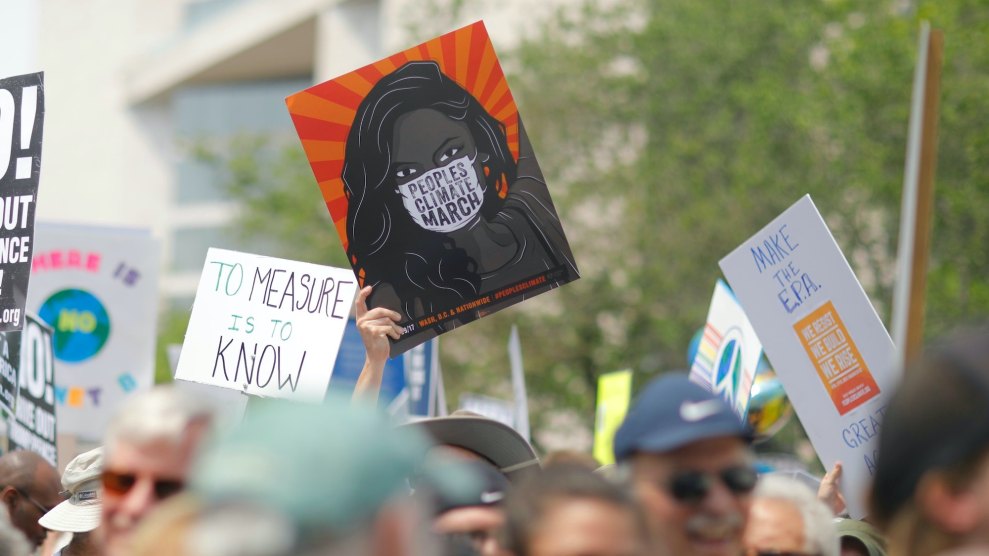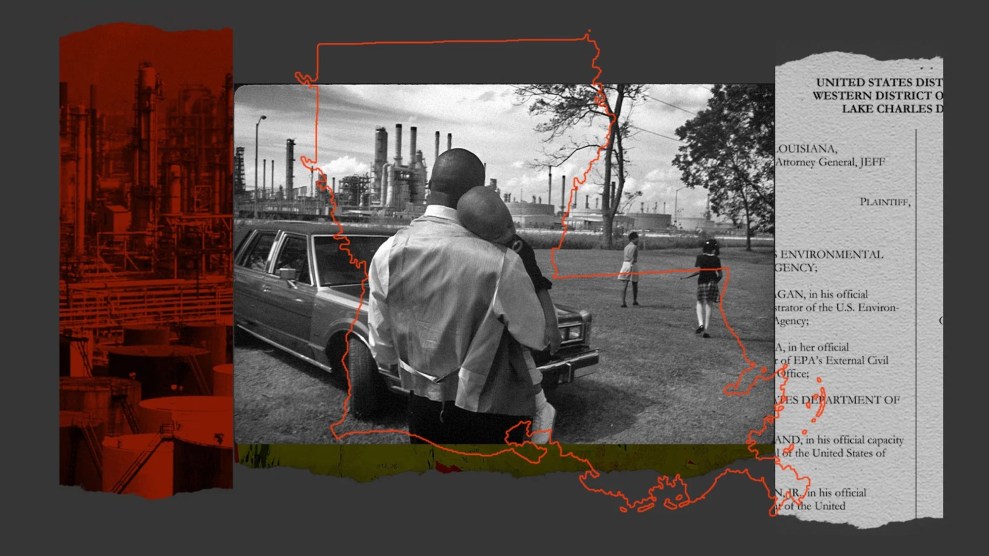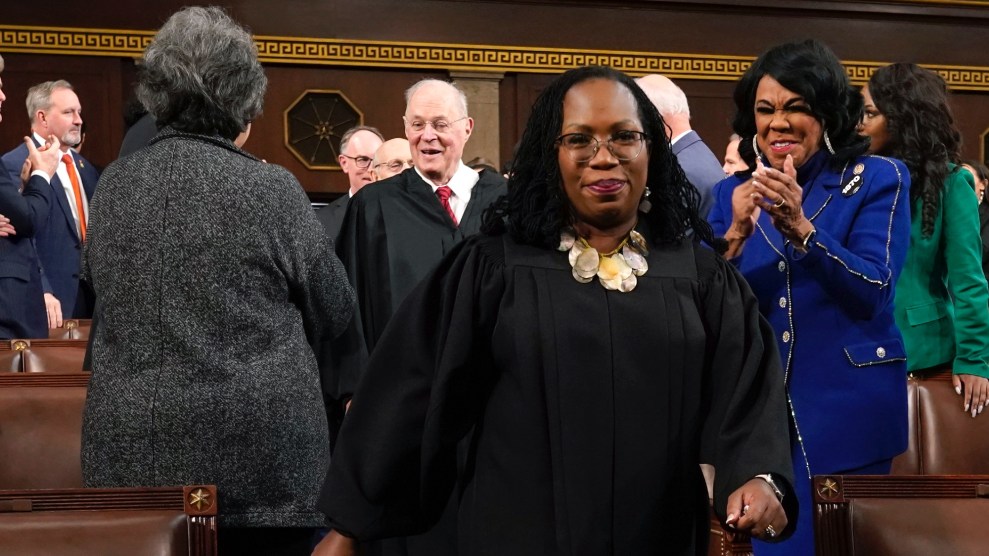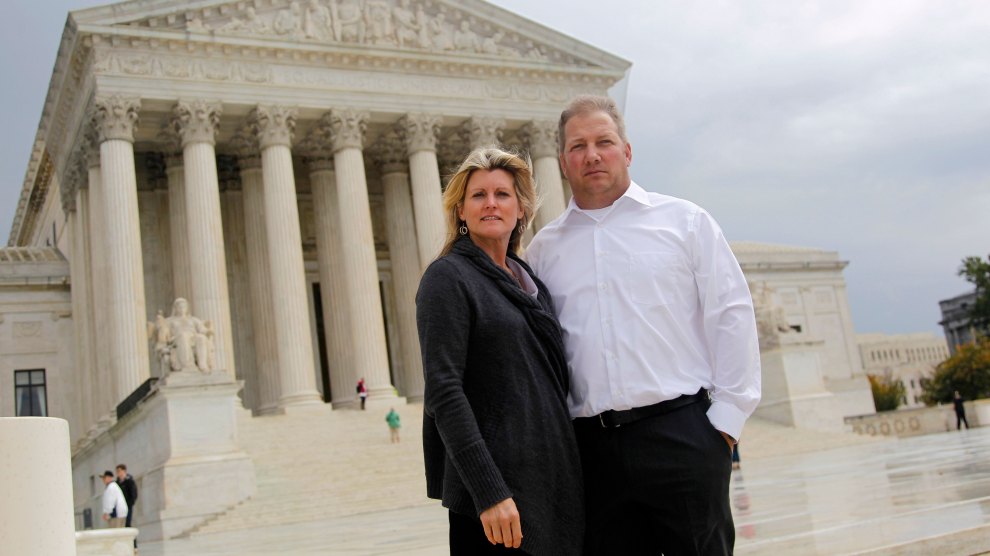
After the high court’s conservative majority ruled it unconstitutional to consider race in college admissions, some experts say programs like Justice40 could face legal challenges. The Climate Reality Project/Unsplash
This story was originally published by Inside Climate News and is reproduced here as part of the Climate Desk collaboration.
A landmark decision by the Supreme Court to end the use of race-based affirmative action in college admissions could impede federal efforts to reduce the nation’s persistent economic, environmental, and health disparities, one of President Joe Biden’s top political priorities.
Biden promised when he first took office to advance environmental justice through a “whole-of government” approach. Democrats also dedicated some $60 billion for environmental justice projects in their flagship climate law, the Inflation Reduction Act.
But some legal scholars are now warning that the administration could find it more difficult to carry out those efforts after the high court’s decision last week to end affirmative action. Specifically, the Supreme Court ruled 6-3 that the admission policies of Harvard College and the University of North Carolina were unconstitutional because they considered the race of the applicants. Known more commonly as affirmative action, the practice of giving an advantage to potential students from some races has aimed to reverse decades of racial discrimination in higher education, proponents argue.
It’s among several precedent-breaking decisions by the high court’s conservative supermajority in recent years that not only throw a wrench in President Biden’s agenda, but are likely to have widespread ramifications for generations to come.
“This does not mean that race-conscious environmental justice efforts are doomed—but the court clearly signaled that the strict-scrutiny test has very sharp teeth,” Emily Hammond, a professor and vice provost for faculty affairs at George Washington University Law School, told E&E News. “Federal, state, and local governments will need to tightly craft their environmental justice policies to meet this standard.”
In other words, federal agencies could have less leeway when it comes to implementing Biden’s executive orders, including those aimed at advancing environmental justice, said Sam Sankar, senior vice president for programs at Earthjustice, one of the nation’s oldest environmental law organizations.
In May, the Supreme Court ruled to drastically limit the EPA’s authority to regulate waterways and wetlands under the Clean Water Act. The high court also ruled last year to curb the federal agency’s ability to regulate power plant emissions under the Clean Air Act.
“Every day the Supreme Court is upending precedents in ways that are causing a chilling effect on those agencies, and they are worried that maybe the regulations that they already have on the books are in question because of some radically new approach by the court,” Sankar told me. “Agencies are worried that they’re going to spend years developing regulations that these right-wing justices are just going to toss out as soon as they show up in the Supreme Court.”
Andrew Mergen, the Department of Justice’s former chief environmental appellate lawyer and the director of Harvard Law School’s Emmett Environmental Law and Policy Clinic, said in an interview that last week’s affirmative action decision “has the potential to complicate” Biden’s implementation of the Justice40 initiative in part by encouraging more lawsuits from Republican-led states that have been enthusiastically challenging much of the president’s agenda.
Justice40 directs federal agencies to deliver 40 percent of the “overall benefits” of their environmental and energy investments to disadvantaged communities. And environmental justice advocates say that provision is paramount to Biden’s goal of improving the air and water quality for communities of color that disproportionately live near industrial development. More than $29 billion across 19 federal agencies have already been filtered through that program, according to the White House, though states will play a pivotal role in how that money gets doled out.
The Biden administration has already opted to walk back some of its promises to address the nation’s inequities, largely to avoid legal challenges from red states. Last year, the administration explicitly left race out of the metrics of a key screening tool meant to help federal agencies identify which neighborhoods to flag for funding priority under the Justice40 program—much to the chagrin of the environmental justice community.
This spring, federal transportation officials retracted guidance that directed states to consider climate change and equity when spending federal infrastructure money. And last month, the EPA decided to close three high-profile civil rights complaints and terminated the federal investigation into whether the state of Louisiana failed to protect predominantly Black communities from decades of toxic air pollution in a stretch of industrial neighborhoods that locals call “cancer alley.”
“This will undoubtedly embolden people on the right to bring these challenges,” Mergen told me. “EJ communities are rightfully concerned about this decision having a chilling effect and creating too much caution in the administration.”
But Mergen also said people shouldn’t read too much into the affirmative action case and noted that the Supreme Court ruled in late June to reject a challenge to Biden’s immigration law from two Republican states. “I think it’s a setback, but I think there are a couple of things that we should keep in mind,” he said. “One is that this administration has a commitment to (environmental justice) like none other in history. And two, I think that there are some signs that the Supreme Court may be getting a little tired of this ideologically driven litigation.”














